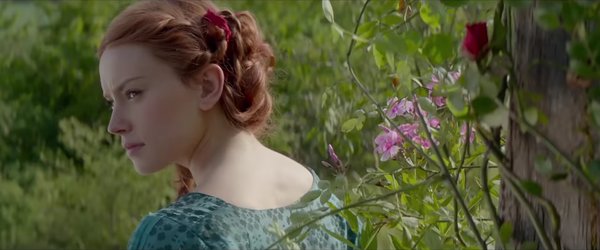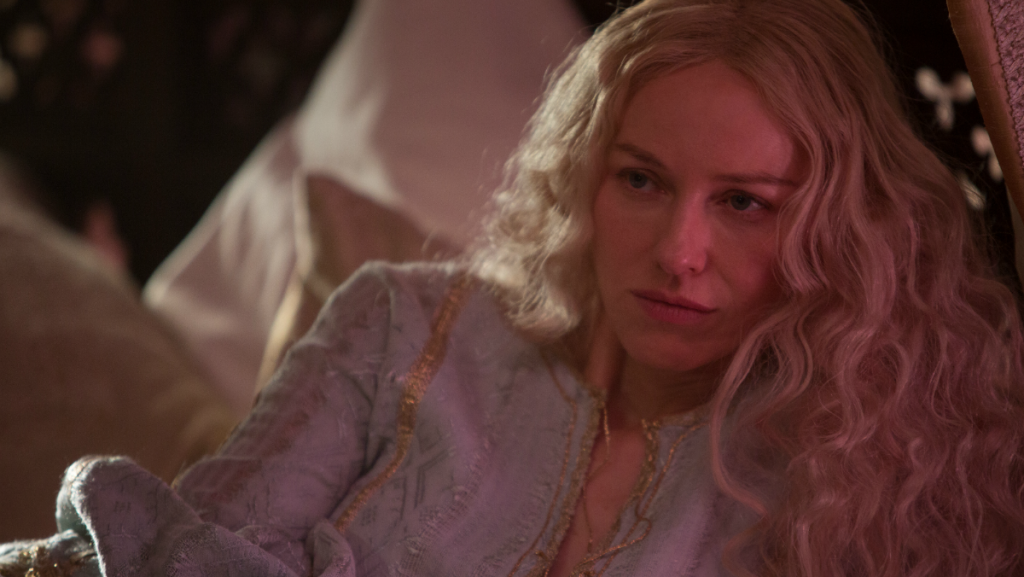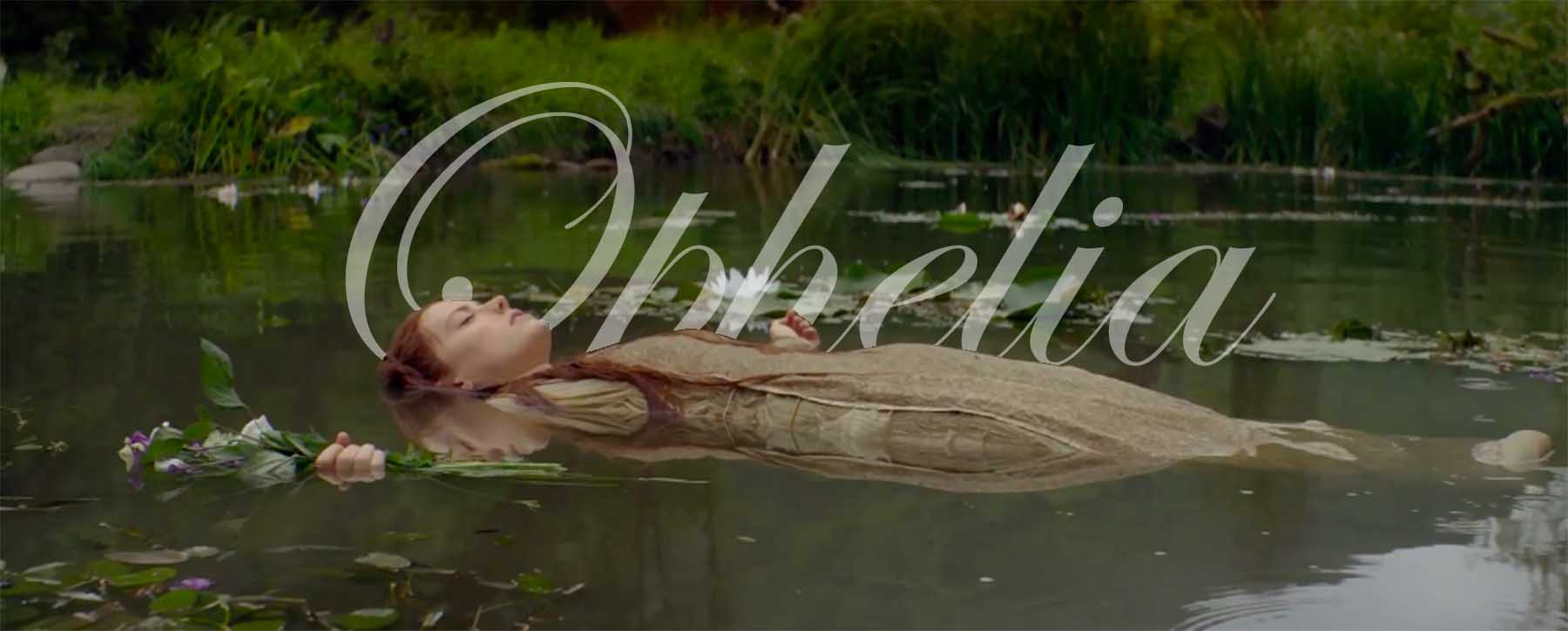Before we start, I have to warn you, there is nothing I adore more than Shakespeare. I’ve attended Shakespearean plays, both modern and classical. I’ve attended Shakespearean operas. I think I’ve seen every adaptation of Hamlet in theatrical form, and I make a habit of watching, pretty much, every derivative as well. I just can’t get enough. (So this movie review won’t be objective at all. Not even gonna try and snow you on this one.) And that’s why I’m bringing you The Movie Ophelia Hamlet Inside Out Brilliance.
To get a feel for just how messed up in the head I am, I once asked a friend in high school if he had enjoyed the movie Rosencrantz & Guildenstern Are Dead. Because, OF COURSE, everyone on planet earth had seen this, the most brilliant of Shakespearean screenplays ever written. I mean, Rosencrantz & Guildenstern was written by the Academy Award winning author, Tom Stoppard (who won for Shakespeare in Love) after all. So yeah! And the premise was brilliant in that it took Hamlet, and turned it inside out and showed it from the perspective of only the two smallest characters in the play. Who, I might add, were experiencing an existential crisis as they attempted to figure out if they existed or not. My friend’s only problem? He had zero idea of what Hamlet was about. Wait WHAT!?!? I proclaimed. You don’t know HAMLET? And just like that, I forced him, at that moment, to sit down and watch Hamlet first…(I think it was the Mel Gibson 1990 version. Yes, there are better versions – Ethan Hawk’s Hamlet set in New York is my own personal favorite. Hate all you like. But Gibson was the one I had there in my entertainment center. I’m thinking it was a VHS tape even?) I mean, he had to know Hamlet in order to understand Rosencrantz. Right? What I didn’t grasp was just how complicated it would be to watch Hamlet, comprehend it, and then watch Rosencrantz. Because, seven hours later, all he said to me was, “Woah, intense much?”
Which leads me to a warning for those of you who are considering watching Ophelia. There just isn’t any way you can grasp what this movie is trying to say without having a pretty solid understanding of Shakespeare’s original play. And not just what happened, but the play was all about, and what it was trying to say.
Walking Down Different Corridors
I might be strange, but the idea of a play, that allows you to know the main storyline, and then also follow different characters down different corridors is totally compelling to me. We know that Hamlet is barreling down a kamikaze slide and nothing is going to stop him. He’s going mad in his rage at his father’s death. Heck, he’s seeing his father walk the ramparts he’s so enraged. But to spin the play on its head, to see it from different angles, and from different character’s perspective is a highly compelling exercise in my mind. To follow Rosencrantz & Guildenstern away from the main play’s storyline, as they wander into a badminton room, to play a game of questions is one of the brilliant experiences available to us now. I mean, it’s Gary Oldman and Tim Roth after all…
And Ophelia does very similar things with this very small part of Hamlet. (OK, so, she’s not nearly as small a part as Rosencrantz & Guildenstern. But small, nonetheless.) But what were the parts that Ophelia played in the original play? How big was her part really? I decided to read back through the play again to get a grasp for how big her part really was, and here’s what I found:
- Ophelia and her brother Laertes, and her father Polonius, speak about Hamlet and how he is being disingenuous in his feelings towards her.
- Ophelia tells her father that Hamlet came to her, said nothing, just stared, and nodded three times.
- Hamlet and Ophelia speak while being watched by the new king and Polonius. Which leads to the famous ‘Get thee to a nunnery’ scene.
- The Mousetrap Play is the next time Ophelia makes an appearance. And Hamlet makes crude sexual remarks to Ophelia, stating that a woman’s love is brief.
- After Hamlet kills Ophelia’s father, Ophelia appears to have gone mad. She talks in riddles and rhymes.
- The final time Ophelia takes the stage is when her brother, Laertes, comes to challenge Hamlet for his father’s death. She hands out flowers, and sings.
But after she leaves the stage, she’s mentioned a few more times. The first being the announcement of her death. In Act 4 Scene 7, Queen Gertrude tells the attendants that Ophelia had climbed into a willow, the branch broke, and dropped Ophelia into the brook…and that she drowned there. Afterwards, a sexton at the graveside states that Ophelia obviously killed herself. And at her funeral, Queen Gertrude drops flowers onto her grave, and states that she wished Ophelia could have been Hamlet’s wife (which seems extraordinarily hyperbolic). And then finally, before Ophelia can be covered, Laertes jumps into the grave to say one last goodbye, and Hamlet challenges Laertes, stating that he loves Ophelia more than “forty thousand brothers could.” And it’s among this framework that the movie builds its very own story.

The Story of Ophelia
When I first saw the trailer for this film a year or so ago, I wondered how it would be possible to turn Ophelia into the narrator of this story if her character dies halfway through this story. You’d have to end the story when she dies. It would be a massive flaw. From a screenplay writing, and brainstorming, standpoint that is a massive flaw that needed to be solved before the rest of the screenplay could be written.
Ophelia starts well before it’s Shakespearean play counterpart. It begins with Ophelia as a child, inserting herself into the King’s court, and becoming one of the Queen’s maids. (Which, seemed extraordinarily stretched, but it was a quick jump from Ophelia as a child, to Ophelia as a lady (played by Daisy Ridley) which was appreciated.) And soon after, the Queen – Gertrude (played Naomi Watts), sends Ophelia to fetch her a potion from a woman in the forest. The woman in the forest, turns out to be, Gertrude’s twin sister, Mechtild (also played by Naomi Watts).
Mechtild is definitely one of the most interesting changes to Shakespeare’s character list that the movie Ophelia has made. Apparently, Mechtild, which is obviously a role stolen from the Friar Laurence playbook from Romeo and Juliet, is a witch that is capable of powerful spells and potions. And is also an important character in Gertrude’s life. As a younger lady, Mechtild had a relationship with Claudius, conceived a child, and lost it in utero. Claudius then rallied the towns-people and they attempted to murder her, but utilizing a potion to make it seem like she was dead, when she wasn’t. Obviously this is a pretty well known Shakespearean move. And it was a cooked hand grenade for what was about to happen later in the movie.
Which brings us to the solution to of the problem for the movie. And that is that she doesn’t actually die in the movie Ophelia. They rewrote her as an independent and strong personality, and not as lost and wayward mad woman. They rewrote Fortinbras’ death into a serpent (interesting moral analogy) biting him in the garden (come on!). Which actually became Claudius murdering Fortinbras with Mechtild’s poison. They rejigged Ophelia’s relationship with Hamlet, and snuck them off into the woods to wed. (But I would argue, the original play probably had them wed anyway. There are a ton of clues that indicate they wed in secret, but I digress.) And also, they rewrote Ophelia’s suicide by using Mechtild’s potion to get her out of this bind. That, and a request to Horatio to come dig her up, and voila, Ophelia is now available to narrate the rest of the story.
And the rest of the story was the dramatic ending of Hamlet, which is where pretty much everyone dies. Before the stabbing, the poisonings, more stabbings, Ophelia tries to talk Hamlet out of dueling, and fulfilling his vow of revenge. But, obviously, he doesn’t – he heads in to duel and 90% of the remaining characters of the play end up dying. And Ophelia heads off on her own knowing that Hamlet made his choice. And the big surprise at the end was that Ophelia was pregnant with Hamlet’s child.

A Few Ophelia Thoughts
I absolutely loved the ducking and weaving of the screenplay in and out of the original play in order to tell a broader story about Ophelia. But I disdained the opening and the cheesiness of her becoming a Queen’s maid. And I also disdained the ending – and the bolted on happy. Yeah, no thanks. Hamlet is a tragedy. Shakespeare doesn’t know how to do a happy ending tragedies because that’s not a thing. He did enjoy his comedies of course, you know, where everyone gets married into the sunset. I did appreciate the fact that the screenplay didn’t use Shakespeare’s brilliant prose when the movie intersected with the play. Only because it would have pointed out just how bad the screenplay of the movie was in comparison. Not that the writing was bad, but you can’t compete with the Bard. And it would be stupid to even try. But if I had to pick my favorite derivative work that I like better than Ophelia? I would go with Rosencrantz & Guildenstern are Dead a hundred times over Ophelia. Heck, I’d go with 10 Things I Hate About You (a derivative of Taming of the Shrew) over Ophelia. But I enjoyed Ophelia all the same. It was a fun ride, with plenty of intriguing surprises that I didn’t see coming.
Edited by: CY

